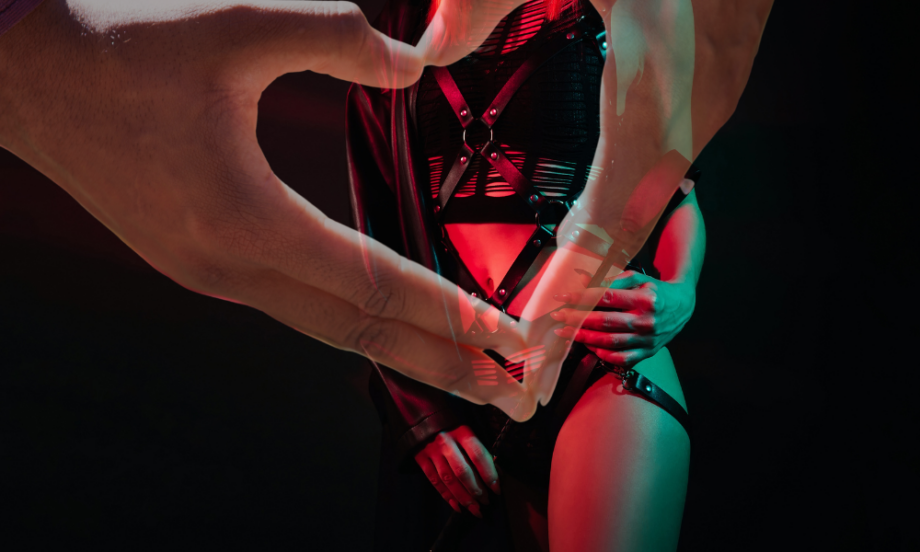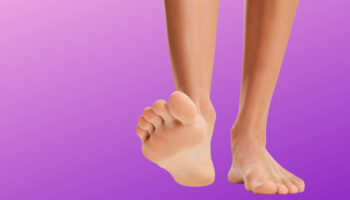When we typically think about aftercare in BDSM relationships, we typically think about the submissive and their wants, needs and desires. As kinksters, we anticipate that every scene that an s-type (submissive) has will need care for recovering from their play and that the d-type (dominant) is typically the one to provide that afercare.
In reality, aftercare can - and should - come in many forms. As we delve deep into our play, it’s important to approach aftercare within a bio/physio-pyscho/emotional-social model. In other words, what are the various needs that someone has in order to even out the hormonal chemical drop that humans get after playing in a scene? When you look at aftercare this way, it's clear that both the dominant and submissive need it. One of the first things to consider regarding aftercare is that there are different types of aftercare. Let's take a look at a few. First, there is biological/physical aftercare. This refers to taking care of a person's physical needs following a scene. For instance, if your blood sugar tends to drop (which often, it does), you may need to fulfill that need with sugary substances, such as chocolate or fruit juice. If you find yourself parched and sweaty, a giant glass of water might be what you need to fulfill your thirst. If your skin temperature drops right after play, you may need a warm blanket or a hot shower. And if you’re feeling connected to your scene partner, you may want to engage in some cuddling to release some oxytocin.
Biological/Physical Aftercare
Read: The Importance of Aftercare
Emotional/Psychological Aftercare
Psychologically and emotionally, there are many needs that a person may have in order for them to feel connected to their experience in a scene. These feelings tend to want to be expressed in a number of different ways. Most often, these needs are expressed as discussions about what a person loved during the scene, what made them feel good, and coming up with ideas for the future that would be tantalizing to them.
Discussing the highlights of a scene, along with what went right, can be incredibly reflective on your own sexuality. You may find yourself thoughtfully sitting with where your desires stem from and this reflection can offer lots of possibilities of where you and your scene partner are headed next. These are needs that can be filled for both the dominant and submissive partner.
Nurturing Core Erotic Feeling
If your D-type already knows their Core Erotic Feeling, or the feeling they need into order to get in the mood for a scene, they know that being in a scene with you is going to elevate that feeling. However, the aftercare is important, because there is always a need to come back to that CEF, even while getting back to homeostasis. For example, if your D-type’s CEF is to worship them, aftercare from their submissive could look like packing up the tools used really nicely, providing them with their favorite beverage, and cuddling them at their feet and lower legs. Giving them compliments and reassurance of what went right in the scene and expressing gratitude and honor at getting to play with them can be a way to tap into a D-type’s CEF, and to solidify the scene as an emotionally powerful and memorable experience for them.
Read: 5 Tips for Practicing Intentional Aftercare
Social Aftercare
Social aftercare has to do with the kind of environment you are in. In many public spaces where D-types are “being farmed out” or “giving tastings/samples” (dishing out the pain, etc.), we see that they might not have the capacity to do aftercare, so they leave it up to the s-types' loved ones to take over that duty of care for them. Some D-types actually prefer this because it offers them a chance to do what they love without having to care for strangers, as they would with people they feel more connected to. It also enables them to see aftercare as more meaningful when they perform it for someone they care deeply about.
What this means is that approaching a D-type in a public space requires a submissive to anticipate their needs and expectations ahead of time. For example, if they are flogging someone and you’re adoring that style that they put on another person and would like to try it for yourself, step up to them after the scene and tell them that you like what you see and that you’d like the opportunity to have an experience with them.
In this pre-negotiation, you can state that you already have someone who is in charge of your aftercare, but that you would be willing to give them aftercare, if they need it, and suggest a few examples of what that might look like (a glass of water, a luxury chocolate, a quick hand rub, cleaning their tools, etc.). This can go a long way in this particular environment because not only is the dominant being assessed by other people in the room, the submissive here is also on display, which can cause everything from anxiety to excitement and everything in between. It's best to approach a dominant in a way that anticipates their needs and pre-emptively helps mitigate them.
We've looked at a number of needs that can be fulfilled by aftercare. But it's key to remember that it isn't just submissives who have these needs. Instead of bruises to take care of, D-types may need care in other areas of their bodies. For instance, if a D-type has arthritis in their hands, they may need those rubbed out as part of their aftercare. If they’ve been standing for a long time, it might be time for them to sit and have their legs and knees massaged. Taking care of the body parts that have been physically impacted can be such a healing experience for the D-type and that’s something that shouldn’t be taken for granted. That goes for all the other types of needs that dominants may have as well.
Regardless of the type of D-type, we do need to talk about aftercare with them in mind and not just the one who is going to be providing all of the aftercare for the s-type. Being considerate of another person’s needs - whether they're dominant or submissive - is necessary to maintain and sustain a long-lasting play partner (if this is something you desire).
Remember D-types need love, too.
Marla Renee Stewart, MA is a professional sexologist, intimacy/relationship/sex coach, speaker, and author. She is the owner of Velvet Lips, a sexuality education company, as well as Contract Liberation, a company focused on research for non-profit groups. As a Lecturer at Clayton State University, she teaches Sociology and Women’s and Gender Studies.As the Co-Founder of the Sex Down South Conference, Marla aims to bring diverse groups together to learn and share their experiences in the essence of being authentic and fostering sexual liberation across communities.Marla has studied human sexuality for over 19 years, has educated over 20,000 people in over 13 years, given over 400 workshops, and have served over 100 clients in her private practice, all around the world. She has had her influence in the media, as well; she has written over 200 articles, featured in over 20 magazines and books, and has been on over 30 podcasts and independent television shows. She was featured on Netflix’s Trigger Warning with Killer Mike, Love & HipHop Atlanta, and filmed as a sex expert for Personal Injury Court and Bad Girls Club: Atlanta.In addition, she also sits on the Boards for SPARK Reproductive Justice NOW! and the Diverse Sexualities and Research Education Institute. She co-wrote her first book, The Ultimate Guide to Seduction & Foreplay (2020) with Dr. Jessica O’Reilly and is currently writing a chapter and co-editing An Intersectional Approach to Sex Therapy, coming in 2021.




